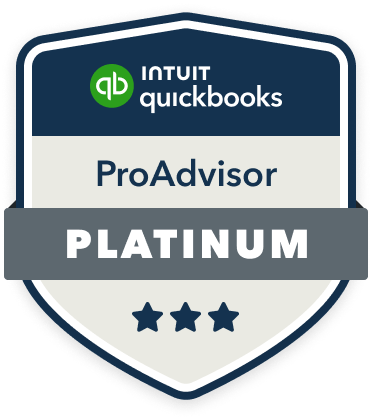Rental income can be a lucrative source of revenue for property owners. However, it’s important to understand the tax implications associated with rental income in the United States. In this blog, we will address common questions regarding the taxation of rental income and provide insights into deductible expenses, property improvements, short-term rentals, self-employment tax, rental property losses, depreciation benefits, foreign property, tax reporting forms, and the tax implications of selling a rental property.[AB1]
How Rental Income is Taxed
Think of your rental income as any other income you earn. It’s taxed as ordinary income, meaning it gets taxed at your regular income tax rate in the year you receive it.
Rental income is generally considered taxable income and must be reported on your tax return. It is subject to federal income tax, as well as any applicable state and local taxes. Rental income is typically taxed at your ordinary income tax rate.
What expenses can be deducted from rental income?
Owning a rental property comes with expenses, but the good news is, you can deduct many of them from your taxable income. Some common deductions include:
- Mortgage interest: Interest payments on your rental property mortgage
- Property taxes: Those annual property tax bills you receive
- Repairs and maintenance: Costs of upkeep and fixing damages
- Depreciation: A way to account for the wear and tear of your property
- Management fees: If you hire a property manager, their fees are deductible
- Advertising and marketing: Expenses incurred to find new tenants
- Insurance: Premiums paid to protect your property
Are Improvements Tax-Friendly?
Improvements that extend the useful life or increase the value of your rental property are capitalized [AB2] and depreciated over time instead of expensing it all in the current year.
However, repairs and maintenance will reduce your rental income. Examples of improvements include adding a new roof, renovating a kitchen, or installing a swimming pool.
How are Short-Term Rentals taxed?
Short-term rental platforms like Airbnb are becoming increasingly popular, and their income is also taxed as ordinary income. The tax treatment may vary [AB4] depending on factors such as the number of days the property is rented and your personal use of the property. It’s important to keep accurate records of rental income and related expenses for tax purposes.
Additionally, some localities or states might have specific regulations and taxes for short-term rentals.
Self-Employment Tax: Does it Apply to Rental Income?
Rental income is generally not subject to self-employment tax. [AB5] However, if you provide substantial services in conjunction with the rental activity, such as offering additional amenities or cleaning services, a portion of the income may be subject to self-employment tax.
Self-employment tax is a tax on net earnings from self-employment. It covers Social Security and Medicare taxes for individuals who work for themselves. It applies to 92.35% of net earnings from self-employment. The tax rate combines Social Security (12.4%) on income up to $160,200 and Medicare (2.9%) on all active income.
You are liable for an additional 0.9% Medicare Tax if your wages, compensation, or self-employment income (together with that of your spouse if filing a joint return) exceed the threshold amount for your filing status:
Shifting Losses: Deducting Rental Property Losses against other income
Rental property losses can be deducted against other income, subject to certain limitations. To qualify for the deduction, you must actively participate in the management of the rental property. This may involve making management decisions, arranging for services, or approving tenants.
Also, you need to meet specific income and ownership criteria[AB6] , you may be able to deduct rental real estate losses against your other income.
The maximum special allowance of $25,000 ($12,500 for married individuals filing separate returns and always living apart during the year) is reduced by 50% of the amount of your modified adjusted gross income that’s more than $100,000 ($50,000 if you’re married filing separately). If your modified adjusted gross income is $150,000 or more ($75,000 or more if you’re married filing separately), you can’t use the special allowance.
Depreciation Perks: A Tax Advantage for Rental Property Owners
Depreciation allows you to deduct a portion of your rental property’s cost over its useful life. You can depreciate the cost of the property (excluding land) over its useful life, which is typically 27.5 years for residential rental properties. Depreciation deductions can help offset rental income and reduce your overall tax liability.
How is Foreign Rental Income Taxed?
Income from a foreign rental property is generally taxed as ordinary income in the US. However, you might be eligible for foreign tax credits.
You must report your rental income and expenses on Schedule E (Form 1040) and convert all foreign currency amounts to US dollars using the yearly average exchange rate.
You can depreciate your foreign rental property over a longer period using the alternative depreciation system (ADS), which is mandatory for foreign property placed in service after 2017. The recovery period for residential rental property under ADS is 30 years, compared to 27.5 years under the general depreciation system (GDS).
You can claim a foreign tax credit for any foreign income taxes you pay on your foreign rental income, using Form 1116. This credit reduces your US tax liability on the same income.
What tax forms are used to report rental income?
The primary form used to report rental income is Schedule E (Supplemental Income and Loss). Depending on your specific situation, you may need to use other forms such as form 4562 to report depreciation, Form 1116 to claim credit for tax paid in foreign, on foreign rental property income as well.[AB8]
All information concerning the rental property, including income, expenses, days of personal use, and days the property was rented, will be documented on Schedule E. The net rental income will then be accounted for on Line 5 of Schedule 1, with subsequent inclusion on Line 8 of Form 1040.
Are there tax implications when selling a rental property?
When you sell your rental property, you’ll need to pay capital gains tax on any profit you make. The amount of tax you owe depends on how long you owned the property and your tax rate.
Here are key considerations that you need to make while selling rental property:
Capital Gains Tax: The profit from selling a rental property is subject to capital gains tax. It is calculated as the difference between the property’s selling price and its adjusted basis (purchase price, improvements, depreciation). Long-term capital gains (for assets held more than one year) are typically taxed at lower rates.
Depreciation Recapture: If depreciation deductions were claimed during ownership, a portion of the gain may be subject to depreciation recapture. This portion is taxed at a higher rate than capital gains.
Section 1031 Exchange: Property owners can defer capital gains tax by reinvesting the proceeds into a similar investment property through a Section 1031 exchange. This allows for the tax deferral of gains if specific criteria are met.
State Taxes: State tax laws vary, and the sale of a rental property may trigger state capital gains taxes depending on the state in which property is located.


